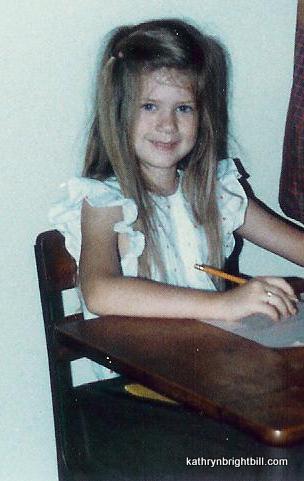Sometime in the next week or so some of what I’ve written here, as well as some new material, will be posted on the Homeschoolers Anonymous blog. You may be asking why, when I’ve already gone on record that my homeschooling experience was largely positive, I’m contributing to a site that chronicles some of the problems that people have had with the homeschool subculture.

The reason is simple. Those of us who were homeschooled have all seen the problems and the abuses. If we’re honest, we know that those problems exist, even if they didn’t exist in our own families. Implicit in the insistence that we weren’t one of those homeschoolers is the acknowledgment that those homeschoolers exist. Those who are telling their stories of how that the subculture hurt them deserve to have those of us who know the truth acknowledge that their stories are real. That we heard the messages from national homeschool leaders as well. That we saw the same things they saw, even if we did not live them.
I could sit here and insist that because my experiences were largely positive that this is proof that homeschooling works and brush aside those stories, but that would be dishonest. Homeschooling can and does work, but it’s also true that well-meaning parents buy into a lot of the craziness because they just want to be the best homeschoolers they can be and they’re being told that this is the right way to do that. If those of us who know better present a vision of homeschooling that is nothing but positivity, we’re doing nothing to warn parents of those traps.
More importantly, in the discussion about homeschooling, those of us who were homeschooled have a right to be heard. Too much of the talk about homeschooling comes from parents, or it comes from kids who are still in the bubble repeating what their parents have told them, while those of us who have graduated and are out in the real world are only given a voice if that voice is repeating the talking points about homeschooling’s wonderfulness. The moment an actual homeschooled kid speaks up about problems, people try to silence it. Homeschool parents insist that, “not all homeschoolers are like that.” Homeschool leaders insist that anyone with a problem was doing it wrong (even though most of the problems come from following their lead). The Christian media that sings the praises of homeschooling and is quick to publish when a homeschool graduate has something good to say, goes silent. The voices of the people who matter most in homeschooling–the kids–aren’t heard. If I stay silent when I know there are problems, then I’m complicit in the silencing of other homeschool kids’ voices.
Not only that, but when I talk about how I had a positive experience and how I consider myself to be a homeschooling success story, it would be lying of me to leave out that as much as I consider myself a success story, I know full well that the homeschool subculture doesn’t see it that way. The way that the conservative homeschooling subculture is sold to parents is that if you do everything right and follow all the steps, your kids will grow up to believe exactly the same things as you do and to continue down that path that you set out. Success is defined in both academic excellence and becoming an ideological and spiritual carbon copy of your parents. That means that as much as I consider myself a success and believe that I am where I am today because of what my parents taught me (and that that’s a good thing), in the homeschool subculture I’m not a success story, I’m a cautionary tale. And that should be evidence enough that there’s something wrong with the subculture.
—
*If you’re wondering about the picture, I figured a picture of me as a wee little homeschool child would break up the wall of text. The school desk was my dad’s from elementary school, my grandparents bought it when the school closed. It’s one of those cool old-timey desks that had a place for an inkwell, all the better for avoiding knocking over the inkwell when dipping pigtails into the ink.